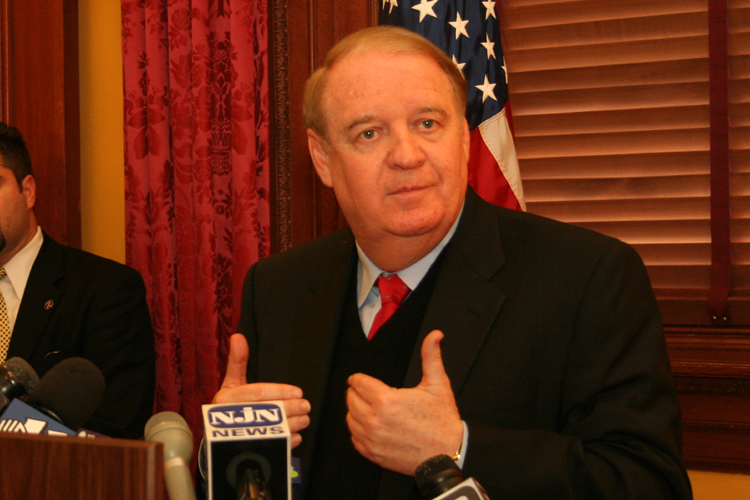
Senate President Applauds Assembly for Cracking Down on Unscrupulous Calling Card Practices
TRENTON – The General Assembly today approved a bill sponsored by Senate President Richard J. Codey (D-Essex) to crack down on calling card companies that cheat consumers out of the advertised minutes by imposing hidden fees and restrictions. Bill S2887 would prohibit certain types of charges and fees and require that all charges and restrictions be clearly disclosed on the cards or packaging and advertising.
“There are a lot of smaller phone card companies out there that try to stay competitive by advertising what appears to be a great deal,” said Sen. Codey. “Then the consumer gets hit with all these hidden fees and they only end up getting 50 or 60 minutes when they thought they were purchasing 100. This has to stop. If I went to a gas station and said fill it up, I wouldn’t expect to drive away with half a tank of gas.”
The bill would require that all minutes promoted or advertised for any prepaid card be available to the customer with no limitation other than deductions for allowed fees and taxes and no expiration unless clearly disclosed on the card or packaging, and advertising. The bill would also prohibit charging for busy signals or unanswered calls and would strictly limit the charges that can be applied to the card to governmental taxes and payphone surcharges.
Sen. Codey noted that part of the problem is lack of accountability on the part of some of these companies and the subsequent frustration that it causes consumers. Therefore, the bill would also require that all prepaid calling service providers and prepaid calling card distributors disclose a number of different details on the cards or packaging and in any advertising, including: the name of the company; the provider’s 24-hour customer service telephone number; the amount and frequency of any permitted fee that may be applied to the use of the card for calls originating in the United States; notice that additional or different per minute rates, charges or fees may apply to use of the card for international calls; notice that per minute rates may be higher for calls made via toll-free numbers; and any applicable policies relating to refund, recharge, decrease in minutes and expiration.
Sen. Codey noted that there is concern that many phone card providers advertise their services to consumers for a specific price and then cheat consumers by not providing such service. For instance, providers will advertise that the phone card provides 100 minutes of telephone time for a fixed price of 2 cents a minute. The providers, however, will deduct from the card hidden fees such as “connection fees”, “disconnection fees”, “operation fees”, “cellular phone fees”, and other charges. As a result, the consumer will not receive the 100 minutes that he or she expected, but instead will receive 40% to 60% of that.
In order to enforce these provisions, retailers would be prohibited from knowingly selling prepaid calling cards that provide fewer minutes than the number of minutes advertised or promoted. Violations of the Act would be treated as violations of the Consumer Fraud Act.
The bill would take effect 7 months after enactment, but would not apply to cards printed prior to the effective date. The Senate unanimously approved the bill in December and it now heads to the Governor for his signature.
# # #

